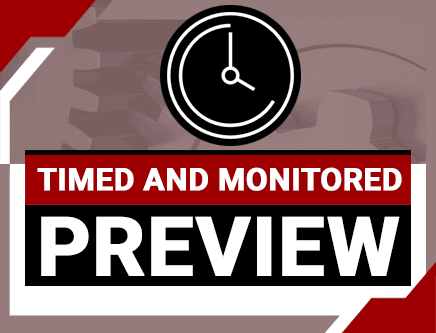Ethical Engineering Practices and Case Studies (Ohio Timed & Monitored Video)
Credit: 1 PDH
Subject Matter Expert: Steven Vitale, P.E., PhD
In Ethical Engineering Practices and Case Studies , you'll learn ...
- The core principles of engineering ethics and their application in real-world scenarios.
- Significant engineering failures and disasters, demonstrating the ethical failures and lessons learned for each case.
- How to develop critical thinking skills in assessing the ethical implications of technological advancements and global engineering decisions.
Overview

To meet the Ohio Board's intent that online courses be "paced" by the provider, a timer will be used to record your study time. You will be unable to access the quiz until the required study time of 50 minutes has been met.
Credit: 1 PDH
Duration: 50 minutes
This course focuses on ethical practices in engineering, highlighting significant case studies such as the Challenger disaster, the Hyatt Walkway collapse, and others. Students will explore engineering ethics principles and apply them to real-world situations. The course covers the importance of public safety, sustainable development, and professional integrity while addressing modern ethical challenges like cybersecurity and global impact. Through a combination of theoretical frameworks and practical applications, participants will gain the skills necessary to navigate the complex ethical landscape of contemporary engineering practice.
Specific Knowledge or Skill Obtained
This course teaches the following specific knowledge and skills:
- The core principles of engineering ethics and their application in real-world scenarios.
- Significant engineering failures and disasters, demonstrating the ethical failures and lessons learned for each case.
- How to apply ethical frameworks to modern engineering challenges, including cybersecurity and sustainability.
- The role of professional organizations and standards (e.g., NSPE, ABET) in shaping ethical engineering practice.
- How to develop critical thinking skills in assessing the ethical implications of technological advancements and global engineering decisions.
Certificate of Completion
You will be able to immediately print a certificate of completion after passing a multiple-choice quiz consisting of 15 questions. PDH credits are not awarded until the course is completed and quiz is passed.
| This course is applicable to professional engineers in: | ||
| Alabama (P.E.) | Alaska (P.E.) | Arkansas (P.E.) |
| Delaware (P.E.) | District of Columbia (P.E.) | Florida (P.E. Area of Practice) |
| Georgia (P.E.) | Idaho (P.E.) | Illinois (P.E.) |
| Illinois (S.E.) | Indiana (P.E.) | Iowa (P.E.) |
| Kansas (P.E.) | Kentucky (P.E.) | Louisiana (P.E.) |
| Maine (P.E.) | Maryland (P.E.) | Michigan (P.E.) |
| Minnesota (P.E.) | Mississippi (P.E.) | Missouri (P.E.) |
| Montana (P.E.) | Nebraska (P.E.) | Nevada (P.E.) |
| New Hampshire (P.E.) | New Jersey (P.E.) | New Mexico (P.E.) |
| New York (P.E.) | North Carolina (P.E.) | North Dakota (P.E.) |
| Ohio (P.E. Timed & Monitored) | Oklahoma (P.E.) | Oregon (P.E.) |
| Pennsylvania (P.E.) | South Carolina (P.E.) | South Dakota (P.E.) |
| Tennessee (P.E.) | Texas (P.E.) | Utah (P.E.) |
| Vermont (P.E.) | Virginia (P.E.) | West Virginia (P.E.) |
| Wisconsin (P.E.) | Wyoming (P.E.) | |


 Live support chat
Live support chat



